I have a shorter newsletter for you this week. I swear I’ve been reading, but it doesn’t seem to be making a dent in the pile. I had a busy week of birthday fun, appointments, and being humbled at physical therapy.
I did get a few books for my birthday. I purchased all these with gift cards or because I deserved the treat. I still have some gift cards to use once I figure out what to get next.
Anyway, here’s my little birthday haul:
Jane Austen and the Price of Happiness by Inger Sigrun Bredkjær Brodey:
Brodey traces Austen’s “development as an author and her convictions about authorship, novels, and the purpose of domestic fiction. In a review of modern film adaptions of Austen's work, the book also offers new interpretations while illustrating how contemporary ideas of marriage and happiness have shaped Austen's popular currency in the Anglophone world and beyond.”
Dress in the Age of Jane Austen: Regency Fashion by Hilary Davidson:
“A comprehensive and beautifully illustrated examination of dress, clothing, fashion, and sewing in the Regency seen through the lens of Jane Austen’s life and writings.”1
Frida Kahlo: The Masterworks by Roxana Velásquez:
“A rich overview of the fascinating life and career of internationally renowned Mexican artist Frida Kahlo (1907-1954), this volume features the artist's complex and diverse paintings, a series of thoughtful essays about her and her oeuvre, and a detailed illustrated chronology.”2
Oh, and my partner got me a new mug from the New York Public Library:
So, what are you reading now? Tell me in the comments.
I’m a BookShop.org affiliate! Full disclosure: I will receive a small commission should you order books using my links.
Book Things:
Currently Reading:
This list looks a lot like last week’s list.
Jane Austen & Crime by Susannah Fullerton:
I shared Susannah Fullerton’s talk about Jane Austen & Crime a few weeks ago, and I’m finally reading the book. I’m enjoying her look at crime during the Georgian period and how it’s reflected in Austen’s novels. There is a lot of discussion about the events in Mansfield Park in particular, and I appreciate the additional context. Austen’s novels are timeless, but there are small details that a contemporary reader would pick up on that we miss. Books like this help to deepen my understanding of her works.
Fullerton also compares Austen’s juvenilia to her completed novels quite a bit. It’s interesting to see how Austen’s early writings were more sensational and wild than her completed novels.
If you’re a lover of Austen, like I am, I encourage you to pick this up.3 (52%)
I'm still working my way through the audiobook for Fool’s Errand. We’re back in Buckkeep with Fitz and the Fool, and it makes me so happy. I am a bit nervous, though, because Hobb keeps talking about how Nighteyes is old, and I just know she’s going to do something to break my damn heart (again). (40%)
I tend to wrongly assume all readers know the plot of every Austen novel, so I will try not to spoil things for anyone unfamiliar with Emma. I never really noticed how long Emma is compared to Pride and Prejudice. I will be reading this for a while, and that’s ok because I’m thoroughly enjoying myself. Elton had his awkward carriage moment and Jane Fairfax is finally in Highbury! Emma is getting jealous, Knightley is growing on me, and John Knightley makes me laugh. I’m finding the additional information about crime in the Georgian period adds to my experience with Emma. I’m very glad I’m reading these in tandem. (36%)
The Woman Destroyed by Simone de Beauvoir:
I’m still stuck on the final story. I haven’t been in the mood to read de Beauvoir this past week. (46%)
Lies and Sorcery by Elsa Morante:
sigh… (70%)
Recently Finished:
Akwaeke Emezi is one of my favorite writers. They have written so many wonderful books in different genres, and I’ve loved every single one. Little Rot didn’t disappoint. The plot is exquisitely crafted, the writing is propulsive, and the criticism of religion and the dissection of corruption in Nigeria were vicious, and I loved it. I missed the more lyrical writing we’ve seen in other books like Dear Senthuran, but I don’t think it was needed in this story.
Little Rot follows several characters as the events and choices of one night and one person change the lives of everyone in this story. There’s sex, corruption, lies, and violence. Emezi beautifully layers new information as each character is introduced, creating a propulsive and addictive read. And the ending is simply shocking. This book is dark, tense, and heartbreaking. I cannot wait to break down all my thoughts when Naomi and I discuss this in an upcoming TBR Lowdown Podcast episode. This was phenomenal.
The Empusium: A Health Resort Horror Story by Olga Tokarczuk (translated by Antonia Lloyd-Jones):
I could sum up my review with this Tiktok. But I will elaborate.
“Semperweiss said he communed with imperfection on a daily basis, and that this entire place was a land of imperfection, the last stop for defective specimens doomed to gradual destruction.”
It’s 1913, and we’re isolated with a bunch of men suffering from tuberculosis at a health resort in the Silesian mountains called Görbersdorf. Our main character, Wojnicz, arrives at the guesthouse, and through him, we meet the other men living in the mountains waiting to die. Death hangs over them like mist. There are constant reminders of the finiteness of their lives, like when Wojnicz is given a pair of hiking boots left by another boarder (because he died). There’s also a strange lack of women in this mountain town. The one woman Wojnicz has any remote sort of interaction with ends up dead at the start of his stay. She was the wife of the man who runs the boarding house, and Wojnicz was convinced there was more to the story of her death than the husband, Opitz, amits to.
“I don’t know how to broach this matter without sounding like someone who has trouble with his nerves. But I can tell you, my friend, you’ve ended up in a nasty place. There’s always someone dying here.”
“Well, of course, we’re at a sanatorium. Chest and throat complaints are hard to cure.”
“That’s not what I meant. She didn’t hang herself, you know.”
“What are you saying?” Wojnicz was disturbed at this, because he had taken a liking to Thilo.
“People get murdered here.”
Right off the bat, things are strange in these mountains, but what can Wojnicz do? He starts making friends with some of the other men. They go on long hikes and drink a strange beverage that seems to change their perception and make them quite chatty. He also sees Dr. Semperweiss from time to time for check-ups. It’s important to note that Wojnicz has issues disrobing in front of his doctor. We learn why as he starts to reflect on his life back home.
“Each of us is a potential lunatic, young man. Fantasizing is the norm. Each of us sits astride the border of our own inner world and the outer one, balancing dangerously. It’s a very uncomfortable position, and not many succeed in maintaining their equilibrium.”
But most of the story is spent listening to the fellow inhabitants of Görbersdorf chat about whatever comes to mind while they try not to think about their impending deaths. And it seems these men like to talk about women in the most misogynistic ways possible. It’s horrifying to read some of the vile statements. Wojnicz and the sweet Thilo don’t participate but don’t push back on the other men, either. As time passes and more of the strange drink is consumed, the more things spiral into chaos, culminating in a night of sheer madness.
“Do an experiment. When you have the opportunity, mention the name of a writer who is important to you in a woman’s presence, and ask what she thinks of him. The higher you value someone, the lower women will rate him, and that’s because what women seek in literature is an excuse to arouse their emotions. They are a long way from making use of ideas. Women are inclined toward literature that safely revolves around interhuman affairs, especially relations between ladies and gentlemen”—here a quarter smile flashed across his face, or a mere eighth of a smile, raising one corner of his mouth like a nervous tic—“ focused on a sentimental and sensual exchange. They always describe the dresses and the patterns on the wallpaper in great detail. They are drawn to the lower classes, and they take pity on animals. They often yield to the attraction of all manner of oddities: ghosts, dreams and nightmares, but also coincidences and other chance circumstances, with which they try to conceal their lack of talent in sustaining a consistent plot.”
When the story is over, and we learn about the fates of these men, Tokarczuk hits us with an author’s note to explain the origins of every disgusting, misogynistic statement made in the previous pages. “All the misogynistic views on the topic of women and their place in the world are paraphrased from texts by the following authors…” and she goes on to list dozens of male writers and literary critics that you are all probably familiar with. Tokarczuk sets her story to mirror Thomas Mann’s The Magic Mountain and uses it to highlight the horrors of misogyny.4 I freaking love it!
“We are shaped not by what is strong in us but by the anomaly, by whatever is weak and not accepted. “If you, young person, were to ask me what the soul is, I would answer like this: The soul is the weakest thing within us.”
I also really loved the relationship that developed between Wojnicz and Dr. Semperweiss. Through Wojnicz's flashbacks, we learn that his life at home wasn’t great. He has a difficult relationship with his father and a complicated history with doctors. To have a doctor step in and be the father figure he was missing was heartwarming.
If you want more on The Empusium, check out my friend KD’s review.
Just in from publishers:
(Thank you to all the publishers who send me books for spotlight and review. I will never get over how bonkers it is that this happens.)
The Children’s Bach by Helen Garner (Out Now from Pantheon):
Helen Garner is a literary institution in Australia. This new edition of her beloved work, The Children’s Bach, has a forward by Rumaan Alam, author of Leave the World Behind and Entitlement. The Children’s Bach is set in suburban Melbourne in the early 1980s and follows Dexter and Athena Fox, their two sons, and the insulated world they've built together. Their lives are ordinary and happy, but when a friend from Dexter’s past resurfaces, the Foxes are introduced to the city’s bohemian underground, and the bonds that tie Dexter and Athena together become strained. The Children’s Bach is “a finely etched masterpiece that weighs the burdens of commitment against the costs of liberation.”
3, 2, 1, Round-up:
(AKA Random Non-Bookish Things Because I Totally Have Other Interests)
Three Things From My Birthday That I Loved:
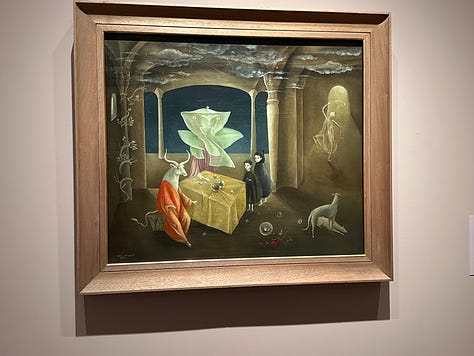
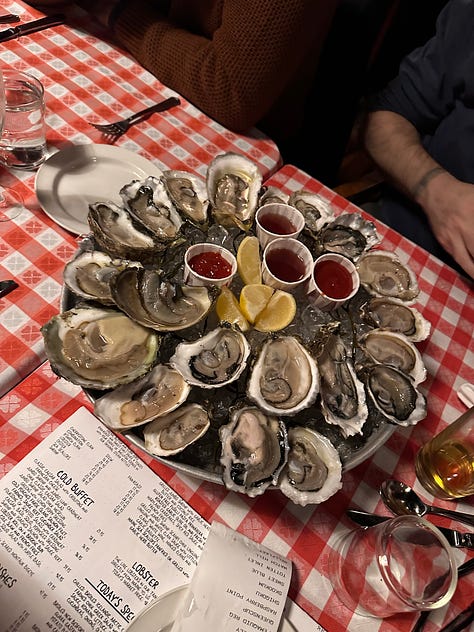
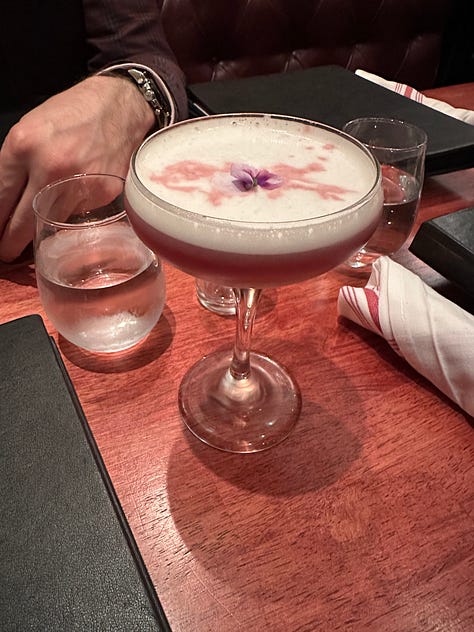
I finally got to see a Leonora Carrington painting in person! I had no idea MoMA had one of her works, And Then We Saw the Daughter of the Minotaur (1953); it was absolutely stunning. I had to wait to see it because this lady blocked it for about fifteen minutes while people kept trying to peer around her. She stood there and didn’t even flinch as people stood on tiptoe to get a glance at the painting she was hogging. I will say it was worth the frustration.
I decadently savored all the oysters at the Oyster Bar in Grand Central Station with my brother and my partner. They were delicious, and some of them were terrifyingly large. We had a blast.
Whatever cocktail I had to start my second birthday dinner was to die for. I’m convinced that any cocktail with whipped egg whites will be phenomenal. This one was called the Frida something something (remember it was my birthday and I was having cocktails). It had tequila, lime, agave, egg white, a drizzle of Bourdeaux, and probably something else I can no longer remember. All I know is it was fancy and yummy!
Two Videos to Watch:
The cynical part of me wasn’t surprised to see the Atlantic article about elite college students being unable to read books. I’ve been watching how the undermining of our public schools and the rise of social media are impacting the younger generations for years. BookTok may have reinvigorated reading as a hobby. Still, I don’t believe it’s enough to reverse the declining literacy rates here in the US and abroad (because it’s not just an American issue). I enjoyed this creator’s take on literacy rates and his advice to help improve your reading habits.5
Elif Shafak has been all over my YouTube feed this week, and I can’t get enough of her! I struggled to pick one talk to share this week. Ultimately, I decided to start with her TED Talk on The Revolutionary Power of Diverse Thought. Perhaps after watching this, your YouTube algorithm will also start feeding you more of her wonderful talks.
One Adorable Picture of Alfie:
SITREP is a free weekly newsletter about books and things. If you want to support my work, consider becoming a free or paid subscriber. You can also simply like and share this post with your friends.
Thank you for reading. See you next week!
I guess I can cancel my library hold!
This book is seriously stunning.
One unfortunate thing to note is that this is only available on Amazon (I couldn’t find it on Bookshop.org). Many people dislike supporting Amazon, but maybe some used copies are floating around.
Full transparency: I need to read The Magic Mountain to make a proper comparison.
You probably don’t need this advice if you're reading this, but it’s still an interesting watch.


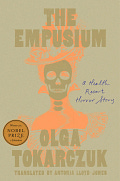
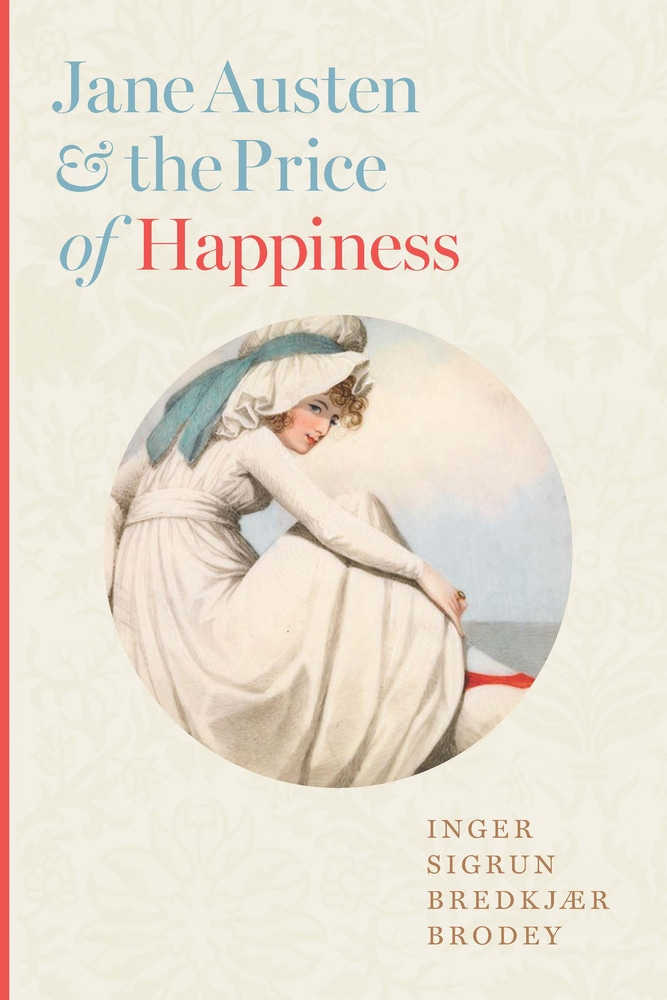
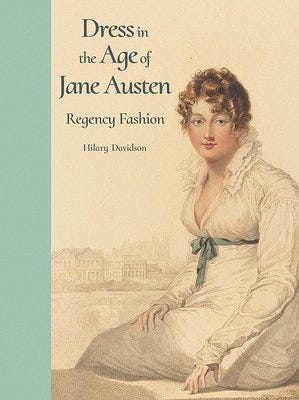
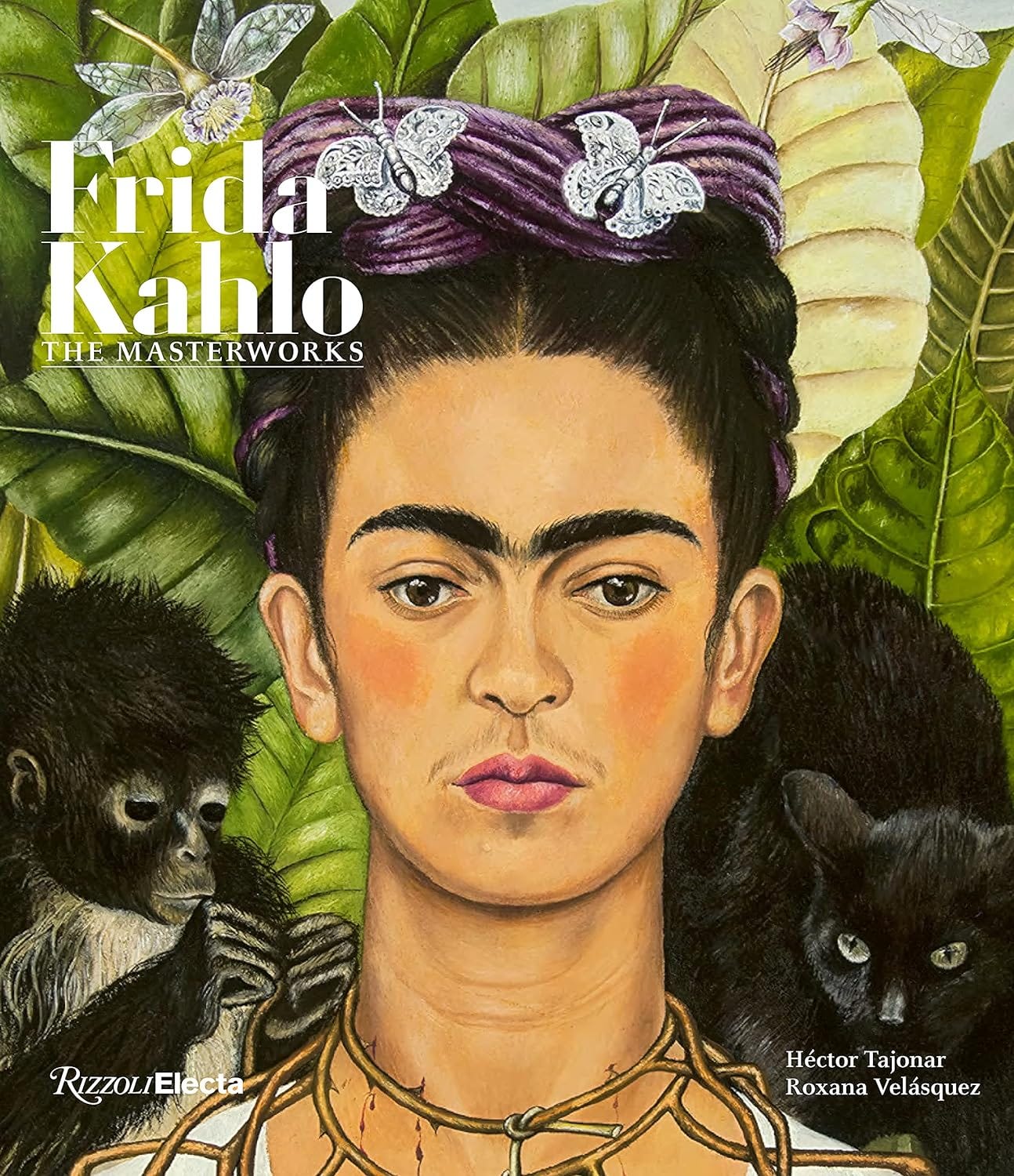
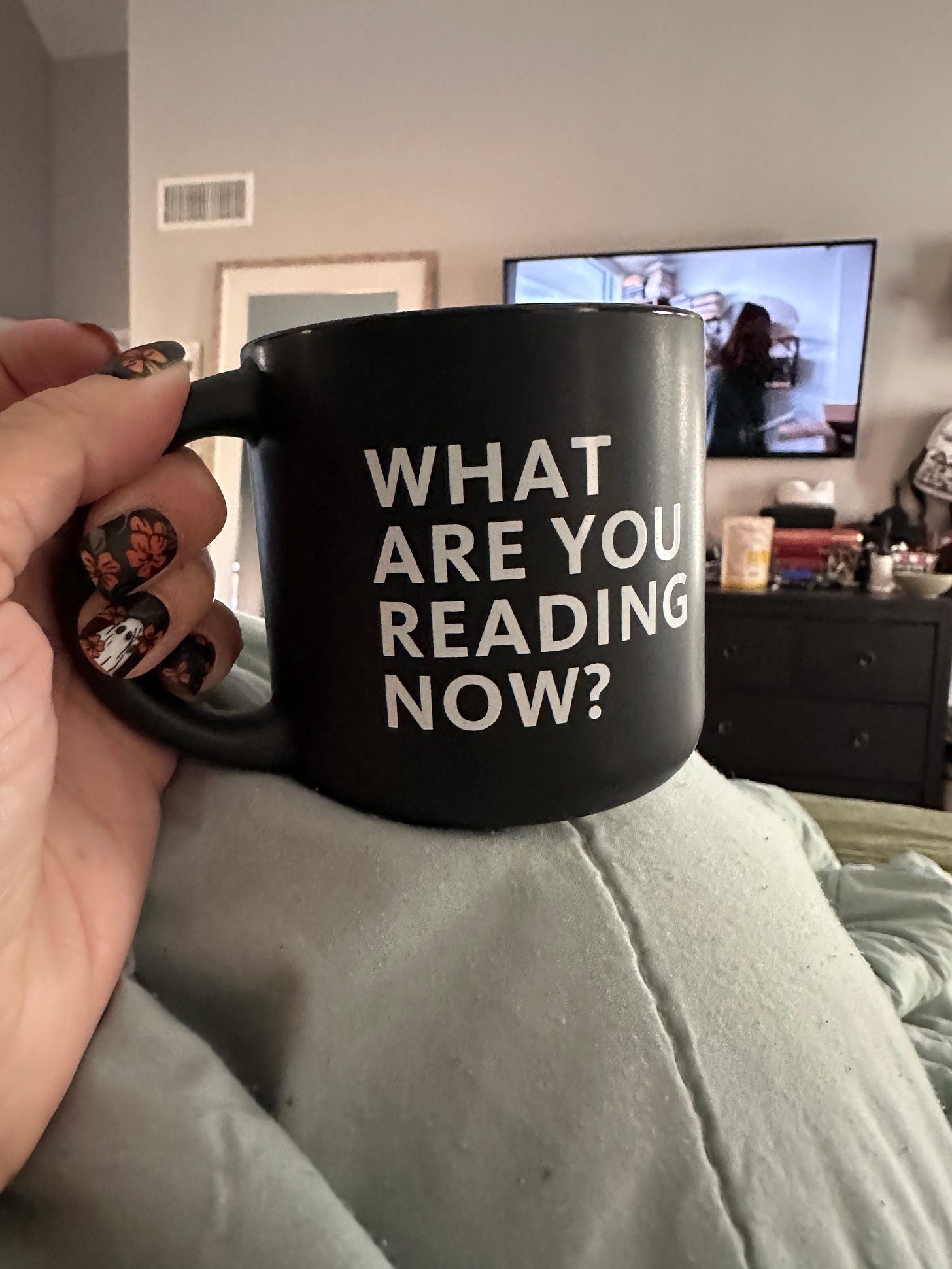
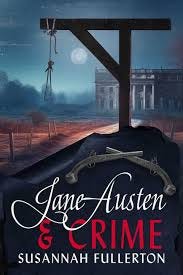
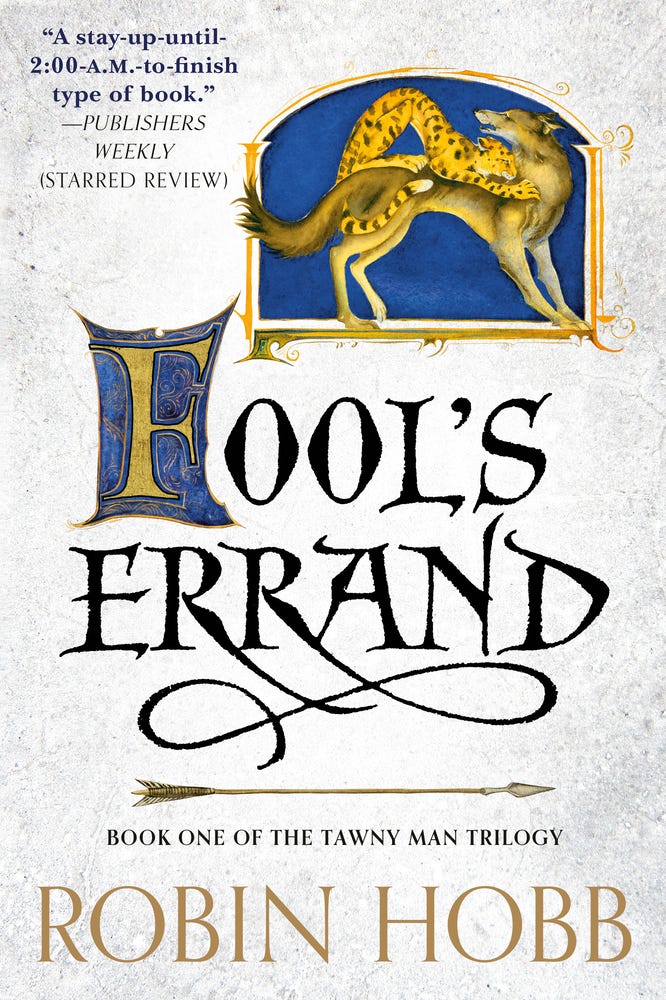
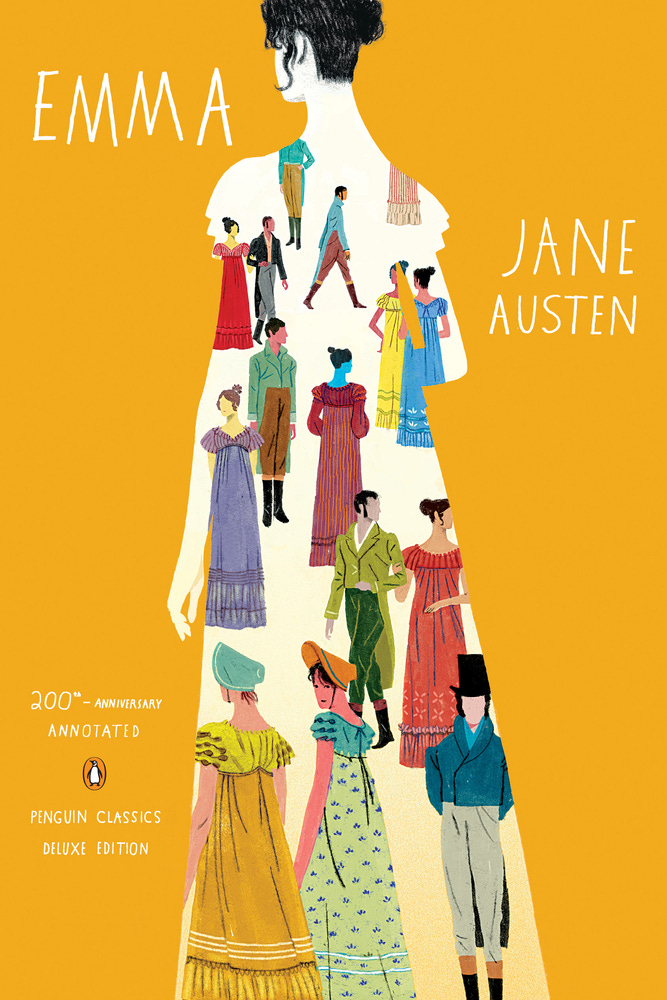
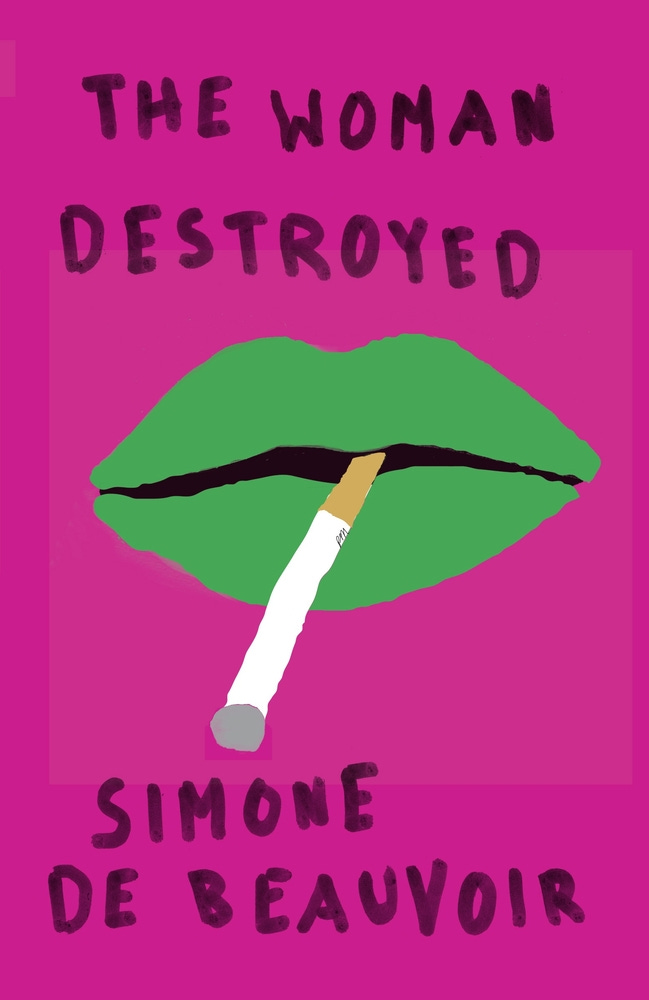
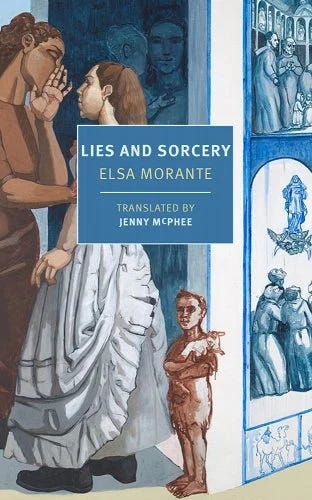
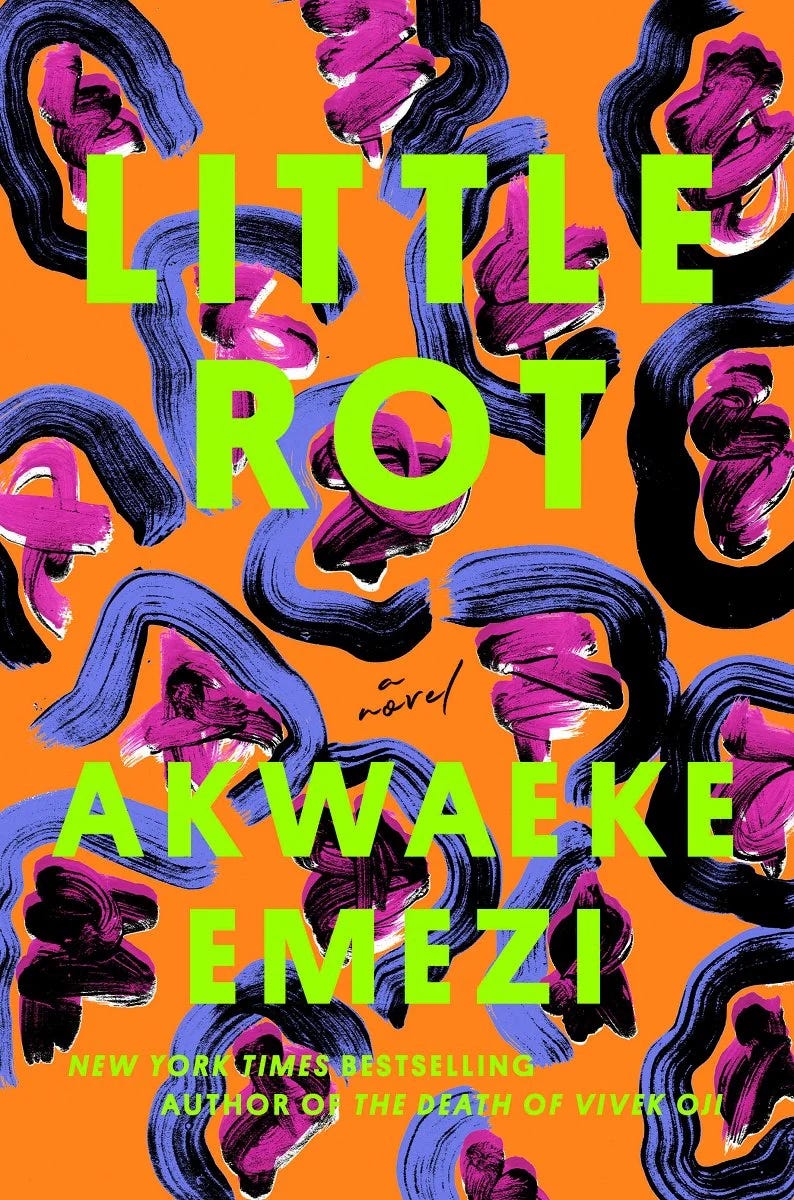

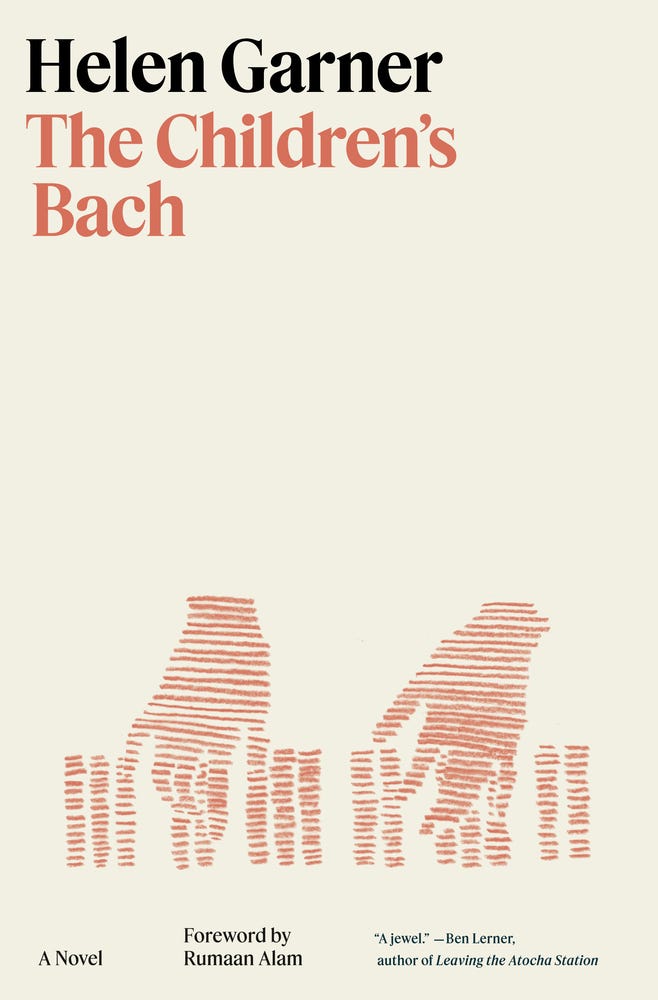
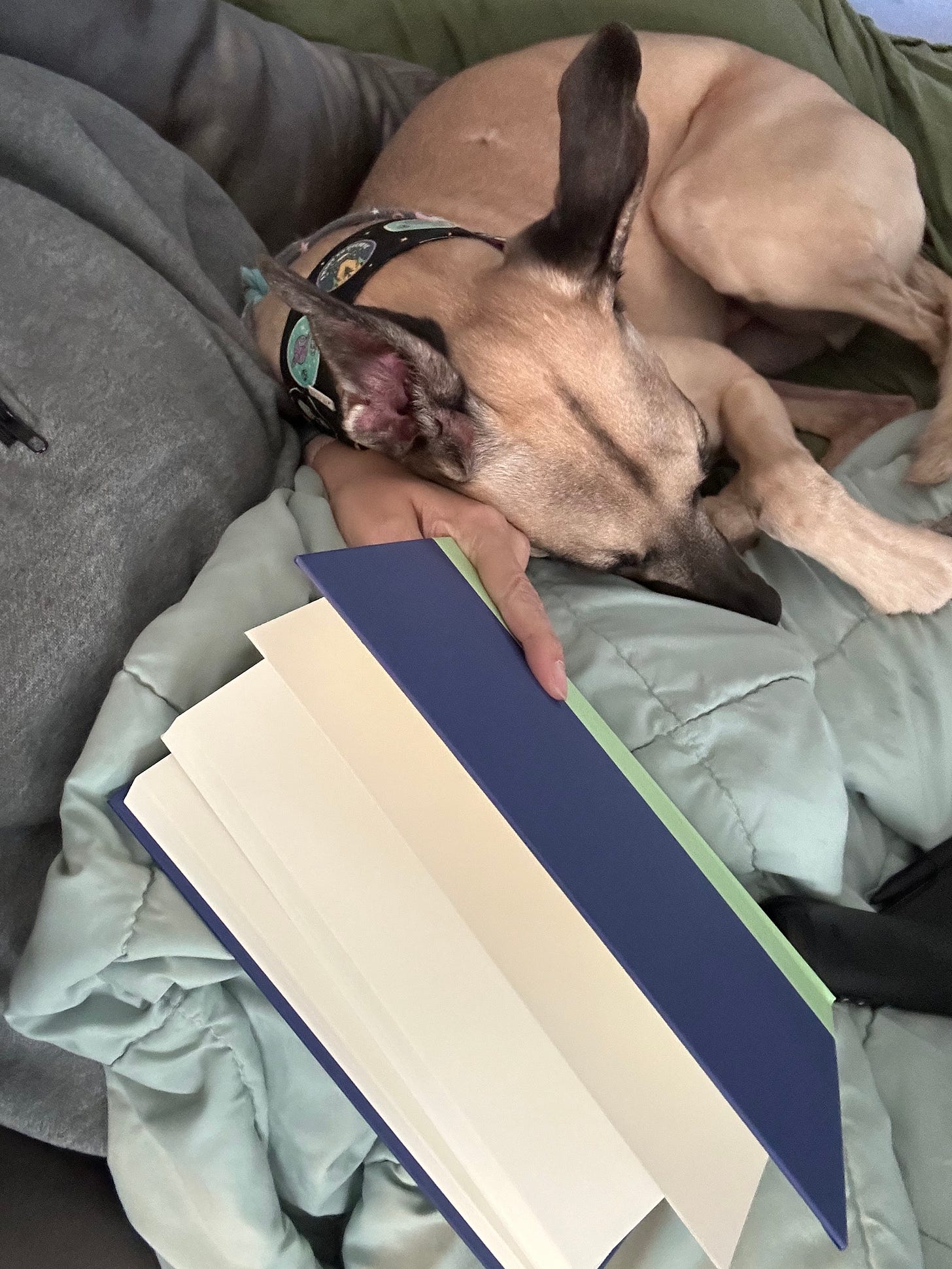
Last witness by Jilliane Hoffman
I enjoyed the video on the decline of literacy—“The Elite College Students Who Can’t Read Books”—and it reminded me that we’d touched on the subject briefly at the last monthly meeting of our local library’s book club at the end of September. Our ‘assignment’ for that meeting had been to come prepared to discuss the novels we’d studied in high school.
I was surprised to see how few books some people said they could remember, though it could be that they just hadn’t applied their minds and memories to the task, or weren’t as curious as I was to see how many titles they could recall. “The Catcher in the Rye”, “Lord of the Flies”, and “To Kill a Mockingbird” were the only novels I’d studied in high school that any of the others had read. Otherwise, no one else had been assigned “Great Expectations”, “The Mayor of Casterbridge”, “The Adventures of Huckleberry Finn”, “A Farewell to Arms”, “The Moon is Down”, “The Pearl”, “Dr. Zhivago”, “Wuthering Heights”, or “A Separate Peace”, to name the books I could recall; I’m sure there are others. It also seems there’s been a decline in the study of Shakespeare.
I was also struck by the fact that no one seemed to have fallen in love with a particular book or author as a result of studying them in high school, though obviously their presence at the meeting was evidence of their affection for reading. One young fellow said his teacher had destroyed any interest he may ever have had in “The Old Man and the Sea”. Some people also made the same point the video had; i.e., that the study of English in high school had become a matter of high scores on literacy tests, rather than a true appreciation of writers and their fiction.